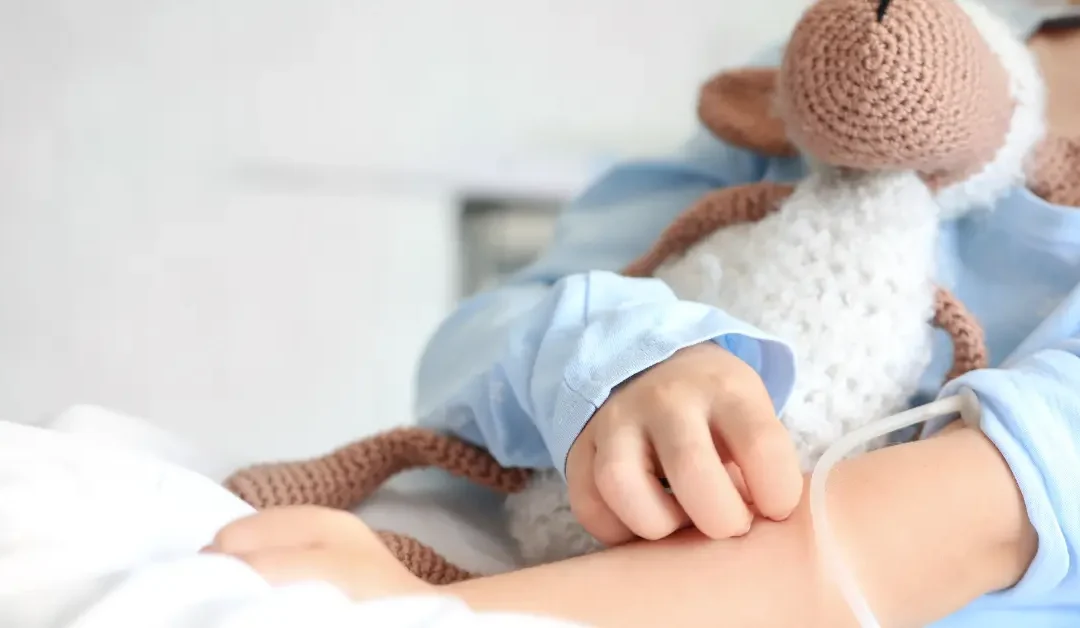The CHI hip surgery review has uncovered serious issues in paediatric care, prompting an apology from CHI and a commitment to reform.


A child’s ability to hear is of paramount importance during their early years as they develop speech and language skills which determine their ability to interact with others throughout their childhood and adult life.
Misdiagnosis, delay in diagnosis, or delay in provision of necessary treatment can have a profound effect on a child’s developmental skills.
Research illustrates that detection and intervention is most effective within the first six months of a child’s life in order to minimize the effect that hearing loss will have on their early development. The amount of time that passes before a child is diagnosed with a hearing impairment will have a significant bearing on how they develop throughout these crucial years of childhood.
There are three main types of childhood hearing loss; Congenital Hearing Loss, Acquired Hearing Loss, Transient Hearing Loss.
Present at birth. There are various causes of congenital hearing loss, though they are not always identified easily. There are both non-genetic and genetic factors which may cause hearing loss.
Non-genetic factors include;
• Birth complications
• The use of ototoxic medication by the mother throughout pregnancy
• Premature birth
• Infection during pregnancy
• Alcohol or drug abuse during pregnancy.
Genetic factors include:
• Autosomal Recessive Hearing Loss
• Autosomal Dominant Hearing Loss
• Genetic Syndromes.
This is hearing loss that occurs after birth. The following are causes of acquired hearing loss;
• A head injury
• Perforated ear drum
• Taking ototoxic medication
• Noise-induced hearing loss
• Meningitis, Measles, Mumps or Whooping Cough
• Untreated or frequent otitis media (ear infections)
This hearing loss is caused by otitis media- the common middle ear infection- and is not uncommon. Statistics show that more than 70% of children have experienced otitis media by the time they attain the age of three years.
This is due to the fact that the Eustachian tube, which is a tube present in the ear that allows for air pressure equalization between the middle ear and the nasopharynx, is smaller and more horizontal during development. Thus, it is very susceptible to blockage by fluids or large adenoids. This type of hearing is often temporary and resolves itself once the infection and fluids have cleared.
The HSE National Universal Newborn Hearing Screening Programme was implemented to ensure that newborn babies undergo a hearing loss screening within one month of their birth. Furthermore, it’s objective is to ensure that diagnostic audiology assessments are carried out on each child before the attainment of three months, and that audiological services and early intervention services are made available to babies in need of treatment before the attainment of 6 months of age. This practice is in line with international standards and supports the contention that early detection is the most effective solution to hearing impairment amongst children.
The result of a misdiagnosis of hearing loss, and/or delay in diagnosis can cause significant developmental issues for a child for the period during which they are untreated. Common issues include, but are not limited to, the following;
• Delay in vocabulary development;
• Delay in comprehension or sentence structure;
• Speech impairment;
• Poor academic achievement;
• Social functioning- isolation, anxiety, difficulty interacting with others and poor self-concept.
Hearing aids, cochlear implants, speech therapy and assistive listening devices are commonly used to treat and alleviate hearing impairment.
Children who have gone undiagnosed for some time may require additional speech therapy, educational assistance and behavioural therapy in order to assist their growth and development in later years.
Hearing aids require replacement every 4-6 years on average, while speech therapy and behavioural therapy, together with educational assistance may prove to be an ongoing expense for an indeterminate amount of time into the future.
If you believe that your child has been misdiagnosed, or there has been a delay in their diagnosis of hearing loss, they may be entitled to compensation for the effect this has had on their developmental skills, together with compensation to cover the cost of necessary treatment in this regard going forward.
https://www.asha.org/public/hearing/Effects-of-Hearing-Loss-on-Development/
http://www.hse.ie/eng/health/child/newbornscreening/Newbornhearingscreening/HSEUniversalNewbornHearingScreeningProgramme/
https://www.healthyhearing.com/help/hearing-loss/children

Head of Client Services
F: 1800-844-104
E: [email protected]
”At Coleman Legal, excellence in customer care is paramount. We aim to meet both prospective and existing clients’ needs professionally and in a friendly manner with a clear objective of giving quality legal advice and reaching a positive outcome.”